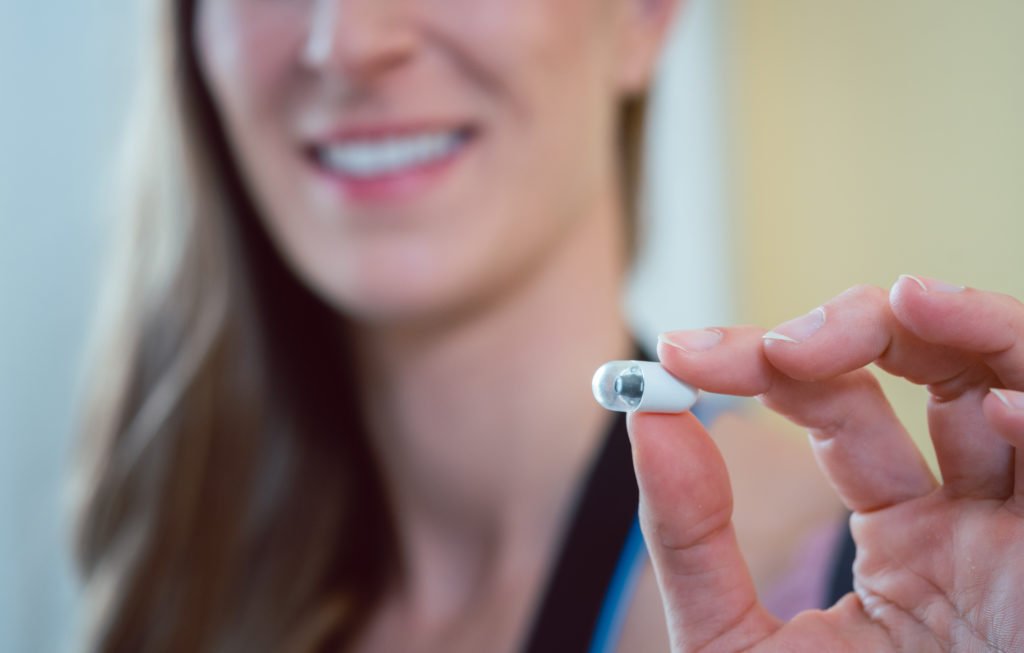PATIENT EDUCATION
Understanding Capsule Endoscopy
What is a capsule endoscopy?
A capsule endoscopy procedure allows a physician to examine the lining of the middle part of the patient’s gastrointestinal tract. This portion of the gastrointestinal tract includes the three portions of the small intestine, the duodenum, jejunum, and ileum. The procedure involves the patient swallowing a pill-sized video camera that contains a light source that can obtain images of the small intestine as it passes through the gastrointestinal tract. The images are sent to a small recording device that the patient will need to wear on their body for the duration of the procedure. A physician will be able to view these images at a later time, and the footage can provide useful information they can use to diagnose and treat several gastrointestinal disorders. This procedure is conducted to help evaluate the small intestine and the parts of the bowels that cannot be reached with a traditional upper endoscopic procedure. A doctor may use this procedure in order to assess the cause of bleeding from the small intestine, and it can also be used to detect polyps, inflammatory bowel disease, ulcers, and tumors.
What is a capsule endoscopy procedure like?
To prepare for a capsule endoscopy, the patient should not have anything to eat or drink for twelve hours before the procedure. The patient will need to inform their doctor if they are taking any medications or supplements, including bismuth subsalicylate, iron, aspirin, or over-the-counter medications. The patient may also need to adjust the doses of these medications prior to the procedure. The patient should also inform their doctor if they have any allergies to medications, swallowing disorders, heart disease, or lung disease. Patients with a pacemaker, defibrillator and those with a history of bowel obstruction, inflammatory bowel disease, adhesions, or previous abdominal surgery should also inform their doctor before the procedure. The patient may also be required to do a bowel cleansing prior to the procedure.
The doctor will apply the sensor device for the procedure, and the patient will then swallow the pill-sized capsule endoscope. The capsule will pass through the digestive system and transmit video images to the data recorder. The procedure does not cause any discomfort for most patients. The patient will be able to drink clear liquids starting two hours after the procedure and should avoid vigorous activity during the capsule endoscopy. The results of the procedure will be discussed at a follow-up appointment.
Contact the specialists at Granite State Gastroenterology if you think a capsule endoscopy may help diagnose a condition related to your symptoms.

Patient Education
Understanding ERCP
Understanding
Diverticulosis
Understanding Colon
Cancer Screenings
Understanding Capsule
Endoscopy
